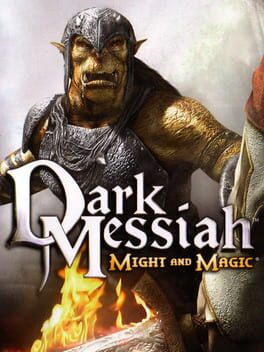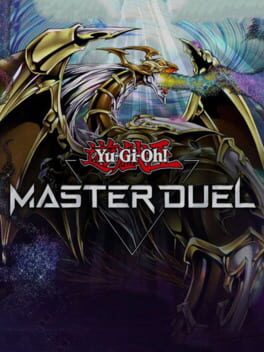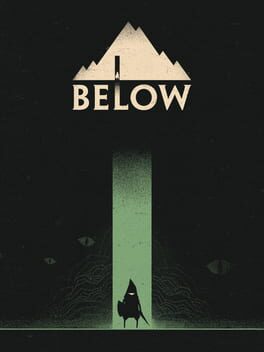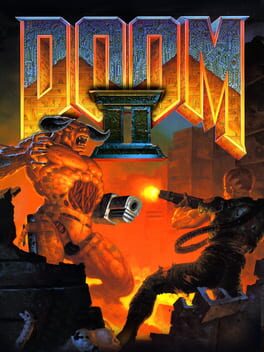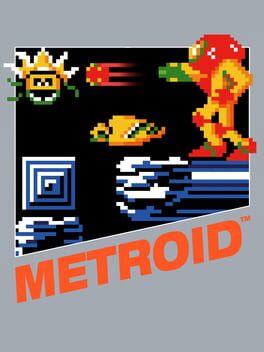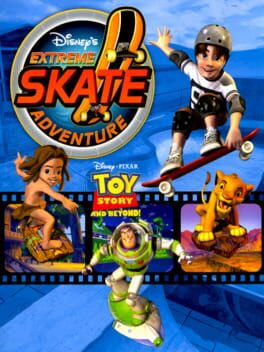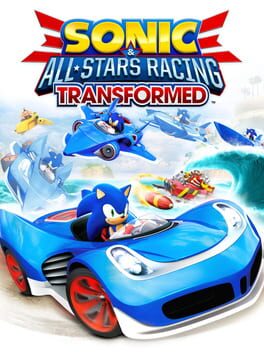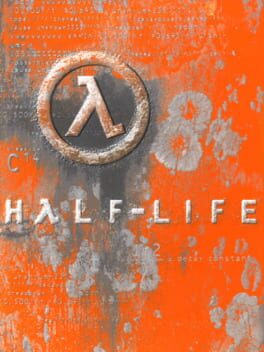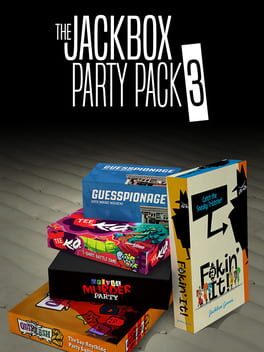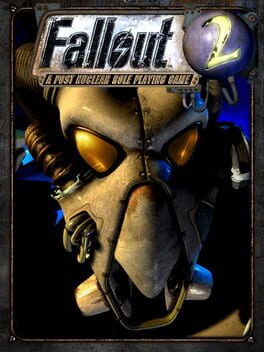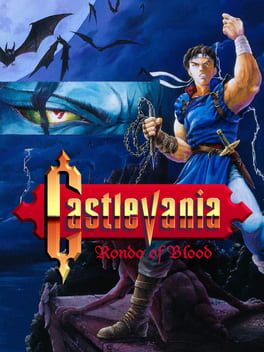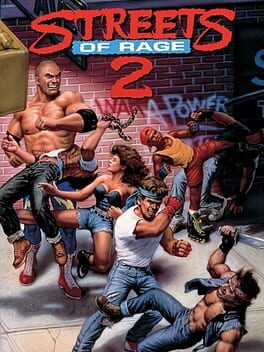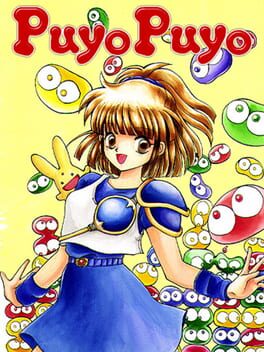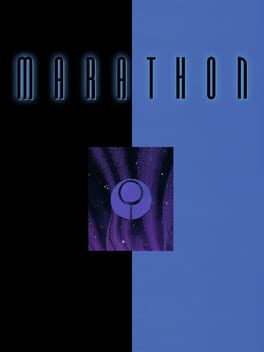HaroKid
This game's greatest legacy is its ambitious approach to first person melee combat, and while it doesn't totally get there with everything it sets out to do, it's a shame no one else has really picked up the torch on this and ran with it.
The actual level design leaves quite a lot to be desired if i'm honest. Maybe it's the generic fantasy setting, but none of the environments really spoke to me in the same way I'd expect from Arkane's later titles.
In terms of narrative, Dark Messiah probably has the worst story in a video game i have ever played that I can remember. The plot is a nothing burger and the voice acting/dialogue is atrocious, and I hate every character every time they open their mouth.
The actual level design leaves quite a lot to be desired if i'm honest. Maybe it's the generic fantasy setting, but none of the environments really spoke to me in the same way I'd expect from Arkane's later titles.
In terms of narrative, Dark Messiah probably has the worst story in a video game i have ever played that I can remember. The plot is a nothing burger and the voice acting/dialogue is atrocious, and I hate every character every time they open their mouth.
How much you enjoy Master Duel will probably enjoy how much you enjoy honest to god modern day YGO, for better or for worse.
The aesthetic leaning into the more Hearthstone/Magic Arena realm and away from the sleek futuristic cyber nonsense of Duel Links is understandable, but also disappointing; Yes, the anime and card games are related, but wholly enjoyable on their own individual merits. Still, it feels like Master Duel is almost afraid of YGO's own branding and legacy at times, gimmicky pets and the usual card pool aside.
Master Duel's usability is also not as great as any of Hearthstone's, Magic Arena's, or even Duel Links'. Navigating menus is clunky and slow, as is passing through the different turn phases, and features such as highlighted ability triggers on a chain (Like Magic Arena) are sorely missed.
Again, this is all mostly bearable depending on how much you like modern day YGO. I find the base ruleset to be perfectly good and fine, but the lack of different matchmaking options (Rank vs Unranked) or different formats - Things like Modern, Oldschool, Draft, or even Speed Duels - makes playing online with strangers an absolute chore once you reach a high enough rank when your opponents are ones with access to any number of archetypes that have boatloads of protection, removal, negation, and special summons that drag a single turn out into 5 minutes of sequence playing solitaire.
[As an aside from Master Duel in specific and more on the game of Yu-Gi-Oh itself, I have often heard some longtime YGO prolifics talk about how fast the speed of the game is. It probably is true in terms of per-match time or total turn count that YGO games are shorter than other games in the genre, but I found while playing Master Duel that in half of my games each of those turns takes so much longer and is very much less interactive than in any other card game I've played. When this happens and it's not your turn, a match that's literally half the length of a bout in [Other Card Game] feels twice as long.]
If that's your thing, then, cool. The YGO card game fanbase is a big one, and it's almost a wonder why it took so long for something like Master Duel to come along. The biggest piece of admiration I can have for this online iteration of the card game is the sheer breadth of cards available from the getgo, either in packs or by way of the game's card crafting system; Only about one card I searched for in the deck editor didn't show up. Even being older than 20 years old, the effort to implement this library of game pieces is appreciated, and something more games could stand to do. Being able to look up your favorite card from when you were younger and play with it has a great satisfaction to it. But I don't see myself seriously returning and investing more hours until more formats/playlists are available unless I'm playing with friends.
On its surface, Master Duel is a gateway for new players to enter the world of Real Ass Yu-Gi-Oh!, much like Hearthstone and Magic Arena were able to make complex card games accessible to the masses in the past. It technically serves that function, especially with it being free-to-play and on just about everything, but I have a hard time having a lot of faith or enthusiasm in it as an effective onboarding experience for anyone without a previous interest in the property.
The aesthetic leaning into the more Hearthstone/Magic Arena realm and away from the sleek futuristic cyber nonsense of Duel Links is understandable, but also disappointing; Yes, the anime and card games are related, but wholly enjoyable on their own individual merits. Still, it feels like Master Duel is almost afraid of YGO's own branding and legacy at times, gimmicky pets and the usual card pool aside.
Master Duel's usability is also not as great as any of Hearthstone's, Magic Arena's, or even Duel Links'. Navigating menus is clunky and slow, as is passing through the different turn phases, and features such as highlighted ability triggers on a chain (Like Magic Arena) are sorely missed.
Again, this is all mostly bearable depending on how much you like modern day YGO. I find the base ruleset to be perfectly good and fine, but the lack of different matchmaking options (Rank vs Unranked) or different formats - Things like Modern, Oldschool, Draft, or even Speed Duels - makes playing online with strangers an absolute chore once you reach a high enough rank when your opponents are ones with access to any number of archetypes that have boatloads of protection, removal, negation, and special summons that drag a single turn out into 5 minutes of sequence playing solitaire.
[As an aside from Master Duel in specific and more on the game of Yu-Gi-Oh itself, I have often heard some longtime YGO prolifics talk about how fast the speed of the game is. It probably is true in terms of per-match time or total turn count that YGO games are shorter than other games in the genre, but I found while playing Master Duel that in half of my games each of those turns takes so much longer and is very much less interactive than in any other card game I've played. When this happens and it's not your turn, a match that's literally half the length of a bout in [Other Card Game] feels twice as long.]
If that's your thing, then, cool. The YGO card game fanbase is a big one, and it's almost a wonder why it took so long for something like Master Duel to come along. The biggest piece of admiration I can have for this online iteration of the card game is the sheer breadth of cards available from the getgo, either in packs or by way of the game's card crafting system; Only about one card I searched for in the deck editor didn't show up. Even being older than 20 years old, the effort to implement this library of game pieces is appreciated, and something more games could stand to do. Being able to look up your favorite card from when you were younger and play with it has a great satisfaction to it. But I don't see myself seriously returning and investing more hours until more formats/playlists are available unless I'm playing with friends.
On its surface, Master Duel is a gateway for new players to enter the world of Real Ass Yu-Gi-Oh!, much like Hearthstone and Magic Arena were able to make complex card games accessible to the masses in the past. It technically serves that function, especially with it being free-to-play and on just about everything, but I have a hard time having a lot of faith or enthusiasm in it as an effective onboarding experience for anyone without a previous interest in the property.
2018
Hell on Earth is more additive expansion than it is revolutionary sequel - Additional weapons and demons bring Doom II to something that feels more complete and rounded out, but doesn't offer much in the way of feeling like a proper sequel to the original Doom.
In broad strokes, the first 20 levels of Hell on Earth's campaign offer a nice upgrade in the intricacy department while maintaining a mostly tight flow throughout that feels like a proper evolution of Doom's level design. The game's final 10 levels, however, sometimes feel like they're trying their very hardest to extinguish any positives of the first two act's offerings, often relying on annoying gimmicks, bloat, and purposeful obtuseness. Extensive gameplay additions like vertical mouselook aiming weren't necessary in the original Doom, but is something that would have been more than welcome given Hell on Earth's insistence on levels with an extreme emphasis on verticality.
Doom II reinforces the idea that though the base game is undoubtedly solid, it's only as good as its levels. Doom II's sandbox is definitive, and was ultimately a venue for commercializing Doom rather than aiming to be a radical follow-up - The sum of those parts: You're probably better off playing through countless user made .WADs using a modern source port.
In broad strokes, the first 20 levels of Hell on Earth's campaign offer a nice upgrade in the intricacy department while maintaining a mostly tight flow throughout that feels like a proper evolution of Doom's level design. The game's final 10 levels, however, sometimes feel like they're trying their very hardest to extinguish any positives of the first two act's offerings, often relying on annoying gimmicks, bloat, and purposeful obtuseness. Extensive gameplay additions like vertical mouselook aiming weren't necessary in the original Doom, but is something that would have been more than welcome given Hell on Earth's insistence on levels with an extreme emphasis on verticality.
Doom II reinforces the idea that though the base game is undoubtedly solid, it's only as good as its levels. Doom II's sandbox is definitive, and was ultimately a venue for commercializing Doom rather than aiming to be a radical follow-up - The sum of those parts: You're probably better off playing through countless user made .WADs using a modern source port.
1986
1998
A trailblazer in the cinematic, story-driven style of FPS, Half-Life accomplished a lot of new things in a compelling wrapper, but perhaps at the cost of having just-barely-serviceable gameplay.
Half-Life is maybe a sort of platformer, but without the physics and controls in place to make half of the precision jumping reasonable.
Half-Life is maybe of tactical shooter, but with an array of tools that can feel useless against highly bullet-spongey enemies.
Half-Life is maybe a focused and linear cinematic rollercoaster, but with endless trial-and-error encounters and cheap shots.
Practically birthing a new trend of how FPS games were made, Half-Life occupies a strange space of being distinctly different from the likes of Quake and certainly the Doom era of games, but hasn't quite locked down the best practices for the subgenre of games it would kickstart. This is hard to fault Half-Life for, but I can't help but feel many of its shortcomings could have been avoided by trimming much of the fat.
The best of Half-Life's offerings all come with an asterisk. Enemy AI is certainly smart, but it's not very much fun to fight against. The FPS formula is mixed up to provide some variety, but many of its puzzles outstay their welcome. The game's scripted moments and queues are all fairly memorable, but often hampered by a slew of technical glitches and goofs - Worse, the effects of these moments are diminished by the need to constantly save and load when the game is eventually unfair or just breaks beyond repair.
The reputation of Xen precedes itself, and it is in fact the lowest point of Half-life - A shame for the climax of any game - But I feel all of Half-Life's worst habits and bad practices really start to manifest in irritating fashion by the second half of the Surface Tension chapter.
At it's core, Half-Life was probably the first FPS game to feel like a playable pulp action hero movie - Maybe less Total Recall power fantasy and more Die Hard vulnerable tension - And it does so with a great sense of style and atmosphere. But to say it's rough around the edges and slightly overlong is an understatement.
Half-Life is maybe a sort of platformer, but without the physics and controls in place to make half of the precision jumping reasonable.
Half-Life is maybe of tactical shooter, but with an array of tools that can feel useless against highly bullet-spongey enemies.
Half-Life is maybe a focused and linear cinematic rollercoaster, but with endless trial-and-error encounters and cheap shots.
Practically birthing a new trend of how FPS games were made, Half-Life occupies a strange space of being distinctly different from the likes of Quake and certainly the Doom era of games, but hasn't quite locked down the best practices for the subgenre of games it would kickstart. This is hard to fault Half-Life for, but I can't help but feel many of its shortcomings could have been avoided by trimming much of the fat.
The best of Half-Life's offerings all come with an asterisk. Enemy AI is certainly smart, but it's not very much fun to fight against. The FPS formula is mixed up to provide some variety, but many of its puzzles outstay their welcome. The game's scripted moments and queues are all fairly memorable, but often hampered by a slew of technical glitches and goofs - Worse, the effects of these moments are diminished by the need to constantly save and load when the game is eventually unfair or just breaks beyond repair.
The reputation of Xen precedes itself, and it is in fact the lowest point of Half-life - A shame for the climax of any game - But I feel all of Half-Life's worst habits and bad practices really start to manifest in irritating fashion by the second half of the Surface Tension chapter.
At it's core, Half-Life was probably the first FPS game to feel like a playable pulp action hero movie - Maybe less Total Recall power fantasy and more Die Hard vulnerable tension - And it does so with a great sense of style and atmosphere. But to say it's rough around the edges and slightly overlong is an understatement.
1998
1992
1992
1986
Perhaps impressive among contemporaries in it's time, both in a technical sense and in terms of scope, the original Legend of Zelda is a mind-numbingly dull experience that makes you wish you were playing another Zelda game.
This will forever be my hottest video game take that 2 people will ever agree with
This will forever be my hottest video game take that 2 people will ever agree with
1994
Marathon offers some neat atmosphere, and was notable for being one of the first few shooters (alongside System Shock) to include mouselook aiming.
Aside from that, there's nothing about Marathon that has aged particularly well, nor is it particularly worth visiting in modern times outside of a curious look into the roots of Halo and Bungie's history with first person shooters.
Nothing about the enemies or weapons is exciting, the level design is unengaging, and the controls have somehow aged awkwardly.
Unfortunately, Marathon is just another one of those weird niche shooters that doesn't have the modern luxury of an excellent source port.
Aside from that, there's nothing about Marathon that has aged particularly well, nor is it particularly worth visiting in modern times outside of a curious look into the roots of Halo and Bungie's history with first person shooters.
Nothing about the enemies or weapons is exciting, the level design is unengaging, and the controls have somehow aged awkwardly.
Unfortunately, Marathon is just another one of those weird niche shooters that doesn't have the modern luxury of an excellent source port.
